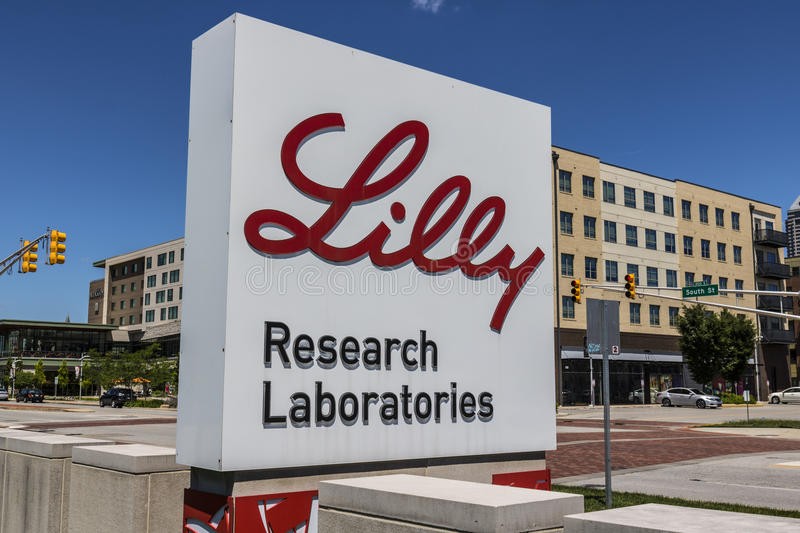Eli Lilly maker of Trump-touted COVID-19 drug in FDA trouble, pauses trial
U.S. drug inspectors uncovered serious quality control problems at an Eli Lilly and Co pharmaceutical plant that is ramping up to manufacture one of two promising COVID-19 drugs touted by President Trump as “a cure” for the disease.
The Lilly antibody therapy, which is experimental and not yet approved by regulators as safe and effective, is similar to a drug from Regeneron Pharmaceuticals that was given to the president during his bout with COVID-19.
Trump, who credits the Regeneron drug with speeding his recovery, has called for both therapies to become available immediately on an emergency basis, raising expectations among some scientists and policy experts that the administration will imminently release an Emergency Use Authorization (EUA) for the drug.
The president’s push is key to his efforts to convince voters he has an answer to the pandemic that has killed more than 215,000 Americans.
But the findings by the U.S. Food and Drug Administration inspectors at the Lilly manufacturing facility, which have not been disclosed previously, could complicate the drugmaker’s bid for a so-called emergency use authorization (EUA) from the federal agency, two of the sources and two outside legal experts told Reuters.
That’s because U.S. law generally requires compliance with manufacturing standards for authorisation of a drug.
The three sources who spoke to Reuters requested that their names be withheld so they could speak freely without fear of retaliation.
Inspectors who visited the Lilly plant in Branchburg, New Jersey, last November found that data on the plant’s various manufacturing processes had been deleted and not appropriately audited, government inspection documents show.
“The deleted incidents and related audit trail were not reviewed by the quality unit,” the FDA inspectors wrote. Because the government inspection documents reviewed by Reuters were heavily redacted by the FDA it was not possible to see the inspectors’ more specific findings.
Following its November inspection, the FDA classified the problems as the most serious level of violation, resulting in an “Official Action Indicated” (OAI) notice.
That “means that the violations are serious enough and have a significant enough impact on the public health that something needs to be fixed,” said Patricia Zettler, a former associate chief counsel at the FDA who is now a law professor at Ohio State University.
Separately, Lilly said on Tuesday it had paused its clinical trial for the COVID drug in hospitalized patients “out of an abundance of caution” over a potential safety concern. The company did not release information on what the problem was and declined to say how the news might affect their EUA request.
The announcement comes one day after Johnson & Johnson said it was forced to pause a large high-profile trial of its experimental coronavirus vaccine because a volunteer fell ill.
J&J said it does not yet know if that person was given the vaccine or a placebo.
AstraZeneca Plc’s AZN.L U.S. trial for its experimental COVID-19 vaccine has also been on hold for over a month after a volunteer in its UK study fell ill.
Trials of that vaccine resumed in other regions after a brief halt.
Lilly said earlier this month it was applying for emergency use authorization (EUA) for the antibody drug, LY-CoV555, for patients with mild to moderate COVID-19 based on data from another clinical trial.
It is not uncommon to pause drug trials to investigate safety concerns, and such actions do not necessarily indicate a serious problem.
Because of the urgent need for drugs and vaccines to tackle a pandemic that has claimed over 1 million lives worldwide – and the speed with which they are being developed – these trials have come under intense scrutiny.
“Out of an abundance of caution, the ACTIV-3 independent data safety monitoring board (DSMB) has recommended a pause in enrollment,” Lilly spokeswoman Molly McCully said in an emailed statement.
“Lilly is supportive of the decision by the independent DSMB to cautiously ensure the safety of the patients participating in this study.”
The Indianapolis-based drugmaker did not comment on the implications for the paused trial, called ACTIV-3, which is testing the treatment on COVID-19 patients who require hospitalization, or on its other ongoing trials.
It is also testing the drug in nursing homes to see if it can prevent staff and residents from getting infected.
In response to Reuters’ questions on Monday about the manufacturing issues, Lilly confirmed the OAI notice but declined to provide details on what prompted the FDA action. The drugmaker said it has launched a “comprehensive remediation plan,” has increased staffing at the site and was working “aggressively” to address all concerns raised during the inspection.
The data deletions cited by the FDA, Lilly said, were not related to production of the drug.
“These findings do not impact product quality or patient safety, as outlined in a detailed assessment submitted to FDA,” the company’s statement said. “Lilly continues to provide updates to the FDA on progress towards completion of our detailed plan.”
The drugmaker declined to provide a copy of the assessment it gave the FDA.
The FDA did not respond to requests for comment. The White House declined to comment.
One of the sources told Reuters that Lilly employees had complained about problems at the plant, including insufficient staffing and falsified records tracking whether workers had followed FDA manufacturing standards.
Lilly said the FDA has not made any findings of falsification at the site.
Out of 563 total inspections concluded in fiscal year 2019 by the FDA across the country, only a small fraction resulted in the most serious OAI classification, FDA data shows, and no other Lilly facility has received such a notice in at least 10 years.
*Source: Reuters via NAN


